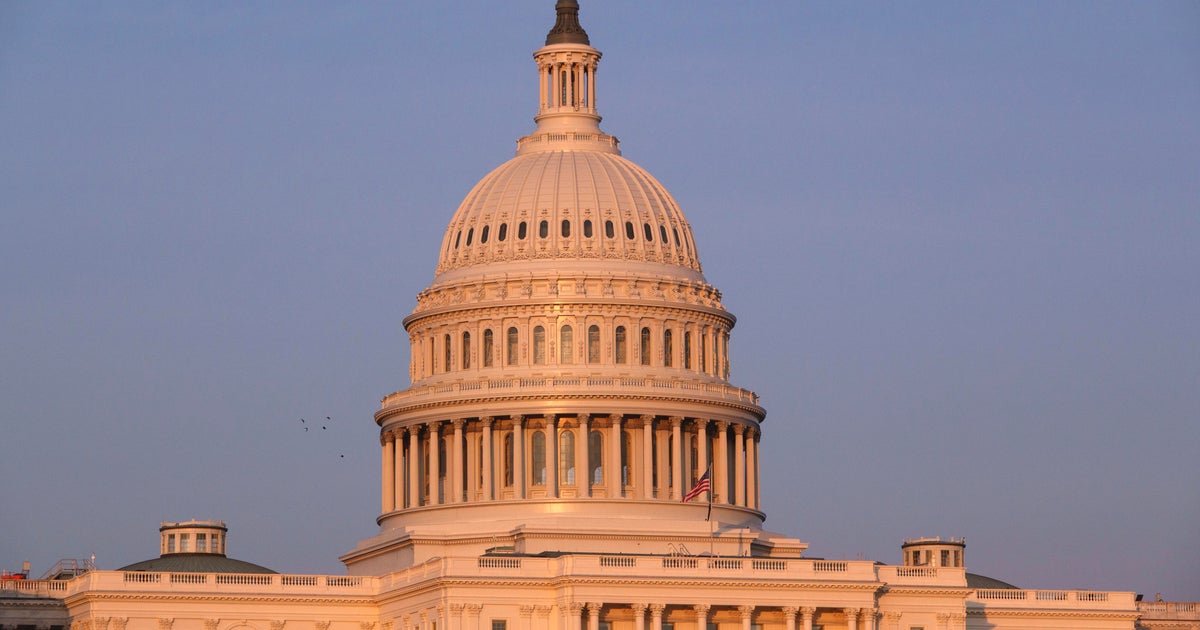Obamacare repeal warning: "massive job losses"
Americans may be split on their feelings about the Affordable Care Act, with some citing concerns about the law’s expense. But a new study finds that getting rid of Obamacare could lead to even higher costs, including the loss of 3 million jobs within four years.
The Republicans are gearing up to repeal the law this month, even though they don’t yet have a replacement plan. Sen. Bill Cassidy (R-Louisiana) told CBSN earlier this month that the GOP would focus on the best-known and unpopular parts of the law, such as the penalties and mandates for individual coverage.
If the ACA’s tax credits and Medicaid expansion are repealed without a replacement plan, the hospitals and health care providers would see their uncompensated medical care costs surge by $1.1 trillion from 2019 to 2028, while the country would suffer “much broader economic repercussions,” according to the new report from the Milken Institute School of Public Health at the George Washington University and the Commonwealth Fund.
“Repealing key parts of the ACA could trigger massive job losses and a slump in consumer and business spending that would affect all sectors of state economies,” said lead author Leighton Ku, director of the Center for Health Policy Research and professor of health policy and management at the Milken Institute, in a statement. “Cuts in federal funding would not only harm the health care industry and its employees but could lead to serious economic distress for states, including a $1.5 trillion reduction in gross state product from 2019 to 2023.”
President-elect Donald Trump on Thursday tweeted that the GOP has plans to come up with something “FAR BETTER” than the current health care law, although it’s unclear what that might be. Mr. Trump hasn’t proposed or endorsed an alternative plan to replace the current law.
Among the economic impact of a repeal would be widespread job losses, the report projected. The economy would shed 2.6 million jobs in 2019, rising to almost 3 million by 2021, the research found. Only a third of those job losses will come from the health care sector, with the majority stemming from industries as wide-ranging as construction and real estate.
The job losses will spiral beyond the health care sector because of the indirect impact of federal funding, which could hinder some workers from using their incomes to pay for food, mortgages and other necessities, the report noted.
“Federal funding thus initiates an economic cycle that ripples throughout the economy, both within and across state borders,” the report said. “The gains from this cycle also generate additional state and local tax revenues. When federal funds are cut, the results play out in the other direction, triggering losses in employment, economic activity, and state and local revenues.”
To be sure, the impact of an Obamacare repeal may not be as dire as projected by the Commonwealth Fund. For instance, changes to tax policy or other health care policy tweaks could abate the impact of eliminating the tax credits and Medicaid expansion.
The study’s forecast of the repeal’s impact on individual states found that the biggest hits will be felt by California, which would lose 334,000 jobs, and Florida, with job losses of 181,000. State treasuries would also be at risk because of shrinking tax revenue, with the study projecting a loss of $48 billion in state and local tax revenue over five years.
“The immediate and most visible effect of ACA repeal would be the loss of coverage and access to care for millions of people who have gained insurance because of the law,” said Sara Collins, vice president for health care coverage and access at the Commonwealth Fund, said in a statement. “This study points to even larger potential economic effects that would be detrimental to the health and well-being of millions more.”
Below are the 10 states projected to suffer the largest job losses:
- California (334,000 jobs)
- Florida (181,000)
- Texas (175,000)
- Pennsylvania (137,000)
- New York (131,000)
- Ohio (126,000)
- Illinois (114,000)
- Michigan (102,000)
- New Jersey (86,000)
- North Carolina (76,000)





